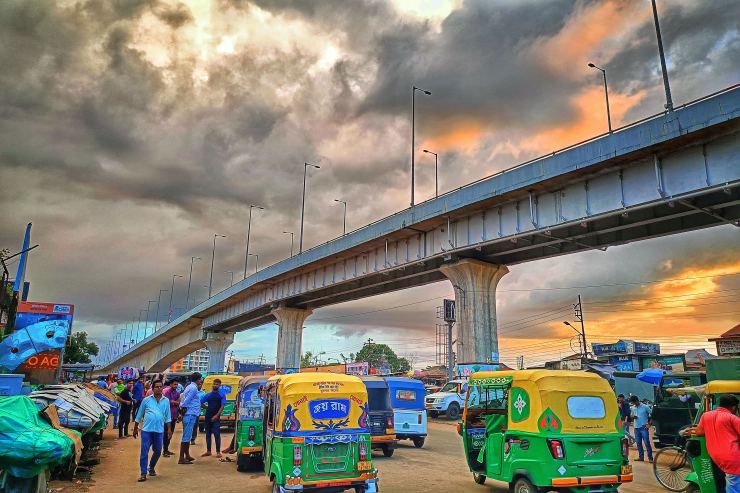
In a move that threatens to heighten communal tensions, the Janajati Dharma Sanskriti Suraksha Manch (JSM), an affiliate of the pro-Hindu Rashtriya Swayamsevak Sangh (RSS), has announced its intention to stage a protest rally on Christmas Day in Agartala, the capital of Tripura.
The focus of their demonstration is a call for the removal of welfare benefits for tribal people who have converted to Christianity or Islam, asserting that these religions are of foreign origin. The JSM argues that individuals who have embraced these faiths should be eliminated from the official Scheduled Tribes (STs) list.
The central argument put forth by the JSM is that converted tribal individuals no longer adhere to traditional customs, advocating for their exclusion from the ST category. This move would deny them crucial benefits such as education, job quotas and other welfare advantages granted under India’s affirmative action programs.
Santi Bikash Chakma, the convener of JSM’s Tripura unit, made the organisation's stance clear during a press conference, stating, “We will organise a massive rally at the Swami Vivekananda Ground on December 25, demanding the delisting of converted people from ST status by amending constitutional provisions.” Chakma emphasised that the JSM is not against any religion but advocates for the preservation of indigenous culture, tradition and customs.
Critics argue that the proposed amendment could infringe upon the right to freedom of religion enshrined in the Indian Constitution. Moreover, there is concern that holding the rally on Christmas Day, a significant religious occasion for Christians, might aggravate religious tensions in the region.
The JSM’s affiliation with the RSS adds a political dimension to the controversy, attracting attention not only from the local population but also from national and international observers monitoring religious and tribal issues. The rally, scheduled to take place on Christmas Day, is expected to draw heightened scrutiny due to its potential impact on the delicate balance between preserving cultural heritage and respecting individual religious freedoms.
As the date of the rally approaches, tensions are escalating, and various stakeholders are expressing their opinions on the issue.
Father Ivan D'Silva, the secretary for social communication at Agartala diocese, voiced opposition to the rally on Christmas Day, expressing uncertainty about the motive behind such a provocative timing. He remarked, “It looks like it is being done deliberately. We called a meeting of all Church denominations in the state and have decided to oppose the rally.”
Father Nicholas Barla, secretary of the Catholic Bishops’ Conference of India’s Office for Tribal Affairs, believes the planned rally is part of “a political program ahead of the national elections to be held next year.” He sees the demand to de-list tribal Christians from the beneficiaries list for STs as part of a larger conspiracy to divide tribal people in the name of religion for the electoral benefit of pro-Hindu parties.
“The demand for delisting tribal Christians from the beneficiaries list for STs is being raised in various states and provinces of India with sizable tribal populations,” Barla said. He warned against using religion as a tool to create divisions and emphasised the constitutional right of people to practise and profess any faith of their choice.
Tripura is currently governed by the pro-Hindu Bharatiya Janata Party (BJP) led by Prime Minister Narendra Modi. The BJP is aligned with the ideology of the RSS, which strives to make India into a Hindu rashtra (nation). The BJP's influence in the region adds a layer of complexity to the controversy surrounding the JSM's rally.
Opposition parties, including the Congress and the Communist Party of India (Marxist), along with regional secular outfits, have vehemently opposed the rally, labelling it as “unconstitutional” and “a conspiracy” to foment sectarian divide in the state. Congress leader Sudip Roy Barman went further to suggest that the demand to de-list tribal Christians from the ST category was floated to disturb the peace and foment ethnic discord and tension in the state.
He cautioned that the pro-Hindu political parties and their affiliate organisations were “risking mutual co-existence on the lines of Manipur,” where ethnic religious violence has claimed many lives and caused thousands to be internally displaced. Pradyot Kishore Manikya Debbarma, chief of the regional outfit Tipraha Indigenous Progressive Regional Alliance, also suspected a conspiracy to use religion to divide the tribal people of Tripura.
Christians constitute approximately 4.35 percent of Tripura’s population, with a significant portion belonging to indigenous tribal communities such as the Tripuri, Lushai, Kuki, Darlong and Halam. The diverse religious landscape includes Baptists, Presbyterians, Catholics and members of various neo-Christian groups.
As the region braces for potential tensions and protests, the debate over the delicate balance between preserving cultural heritage and respecting individual religious freedoms intensifies.




